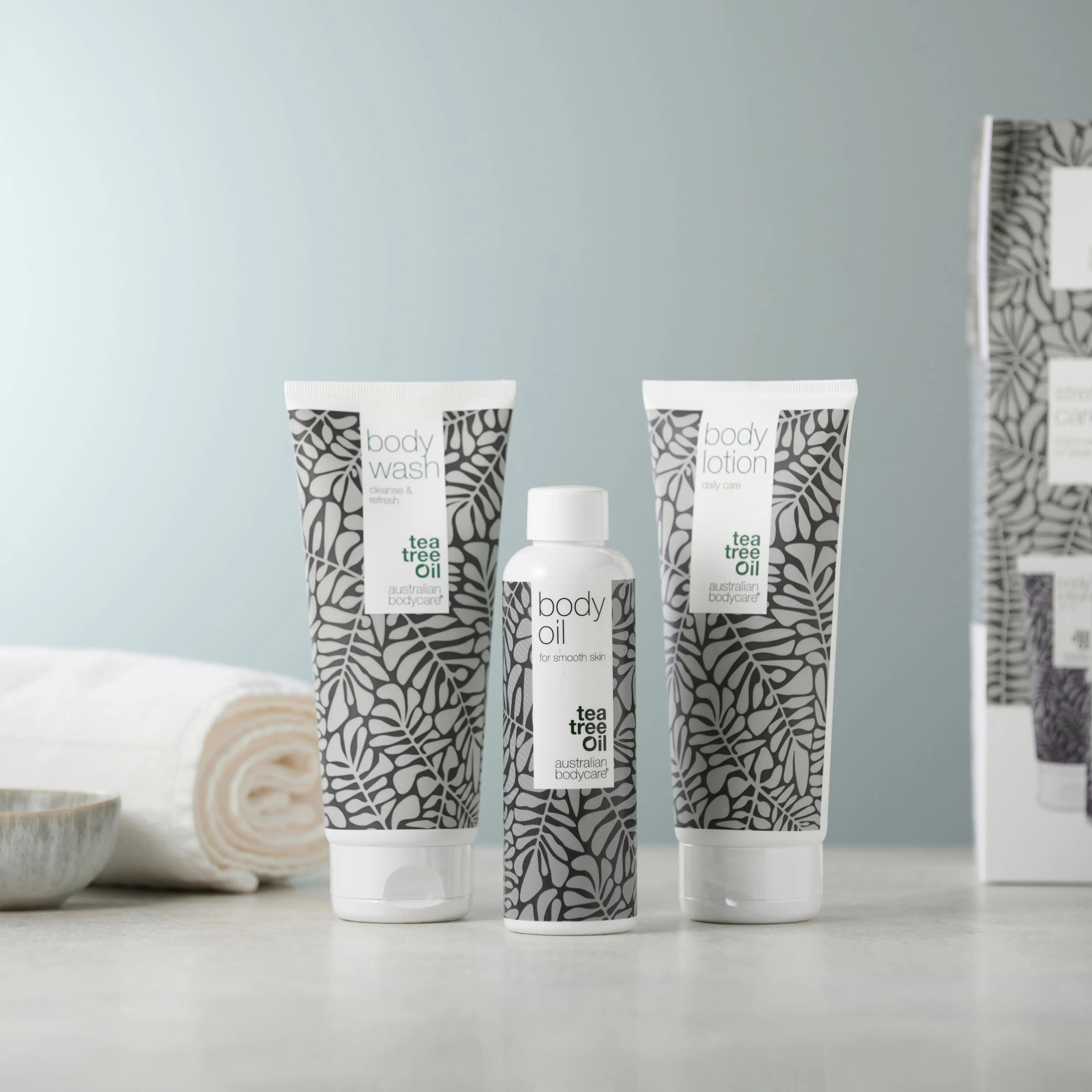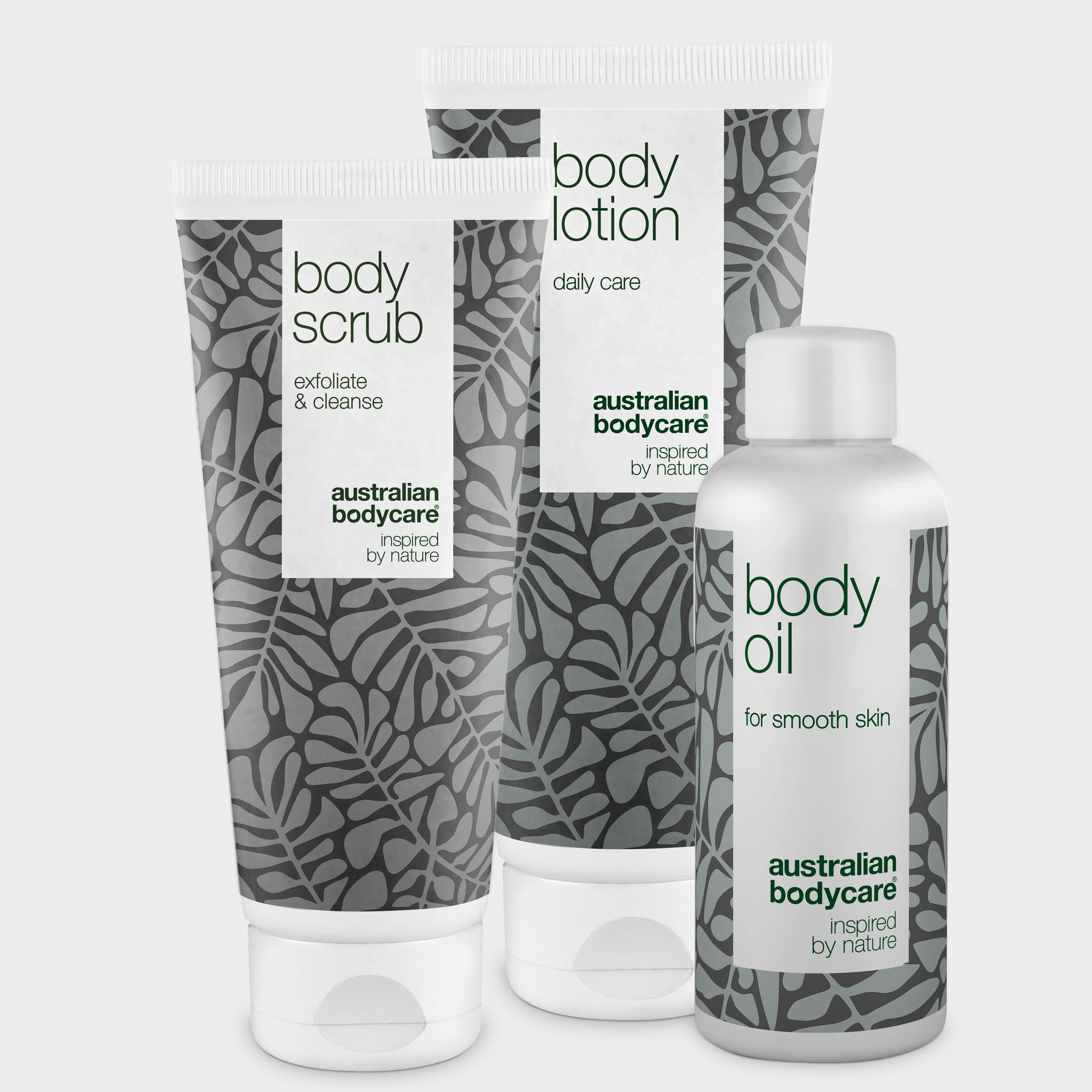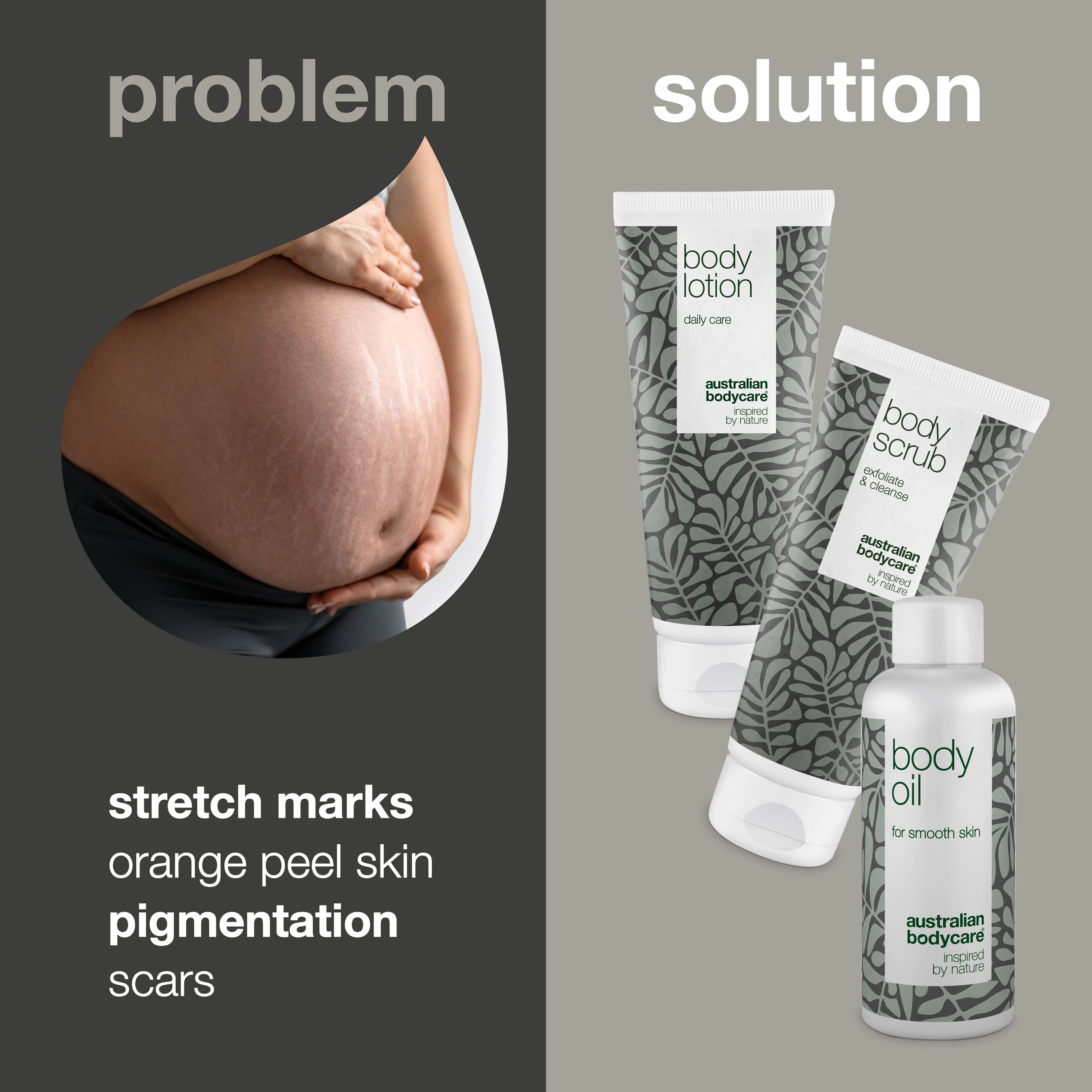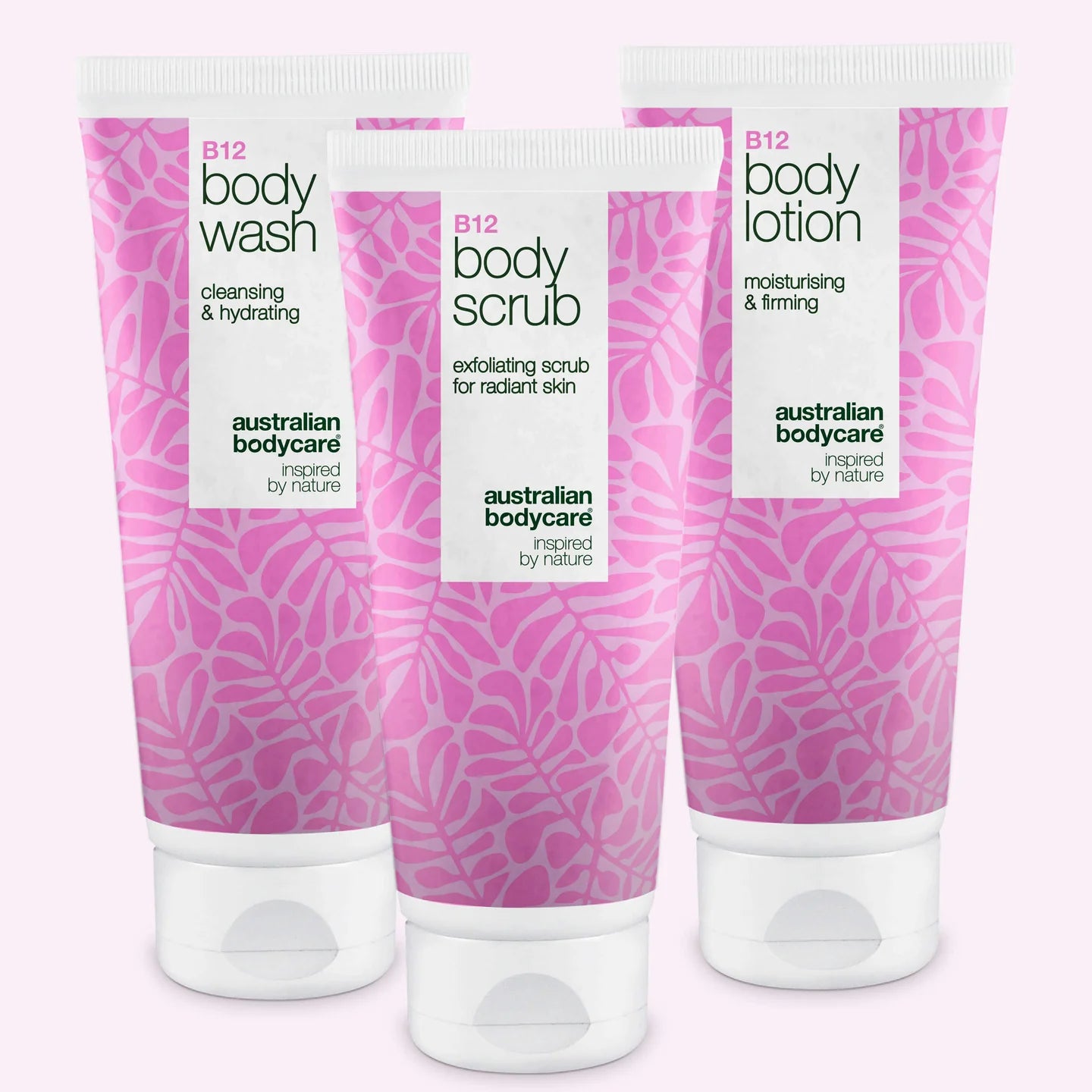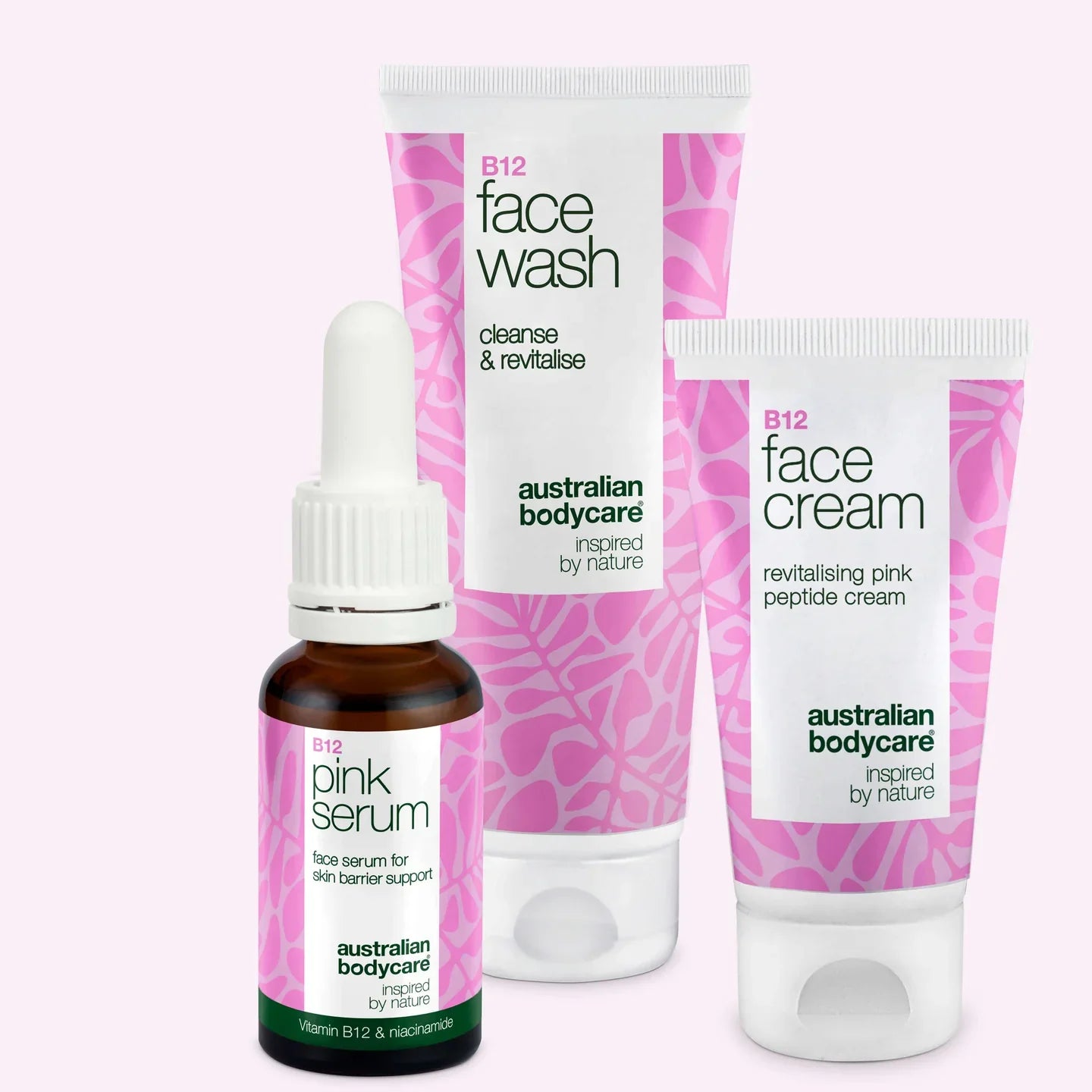How to care for your scars – reduce the appearance of scars
Do you always notice the scars on your cheeks when you look in the mirror? If you have a scar, it can be a major cosmetic nuisance.
But what are scars? And can you improve its appearance? Find out all this and much more here.
Table of contents
What is a scar?
A scar is a mark left on the skin after an injury. If the surface of the skin has been broken, you will have a wound that can become a scar when it heals.
This may be after a fall, a bite, an operation or other damage to the skin. The scar appears as a mark when the wound has healed. A scar can look in different ways.
It could be:
- A red scar
- A white scar - without pigment
- A dark scar
- An Acne scar
- A scar from an operation or surgery
- A superficial scar
- A deep scar
Why do you scar?
To understand why you get a scar in the first place if you fall, cut yourself or get bitten by the neighbour's dog, we need to delve deeper into the composition of your skin.
The three parts of your skin
Your skin is made up of epidermis, dermis and subcutaneous tissue.
You can see the epidermis with the naked eye - and it is the thinnest layer. Cells in the epidermis renew themselves every few weeks to a few months.
The dermis, on the other hand, is not visible when you look in the mirror. It is composed of fibres. It is not cells that are replaced, but fibres that renew themselves slowly.
The subcutaneous tissue is mainly made up of connective tissue cells. Its purpose is to act as a kind of cushion and insulation.
Your scars occur in the dermis
Not all wounds turn into scars. But you will have a scar if your wound goes deeper than the epidermis into the dermis or beyond. Here there are no cells to renew the skin, but in the wound healing process many new fibres are formed.
When there is an imbalance in the fibres, the body does not have the ability to put them together in the same way as they were naturally. This means that the fibre system becomes disordered, which causes the skin to look different.
Scars don't go away
Unfortunately, once you have a scar, it also means that you have to live with it for the rest of your life. A scar does not go away. However, this does not mean that it does not change.
At first, the scar will usually be very red and swollen, but as time goes by, the redness and swelling will decrease. But after a year or so, the body has done its job to improve the appearance of the scar. The fibres are still being replaced in the dermis, but the improvement will no longer be visible to the naked eye.
However, even if a scar never goes away, that doesn't mean you can't do your part to minimise its visibility. Read on to find out more about scar treatment.
How to treat scars
There are several different methods you can use if you want to reduce your scars and minimise their visibility.
In the following, we will discuss:
- Skin care
- Injections
- Laser treatment
Treating scars with skin care products
With good, nourishing skin care, you can make your scars more attractive and less visible. The earlier you start, the better. But it's never too late to improve the appearance of a scar.
Body Oil from Australian Bodycare is an oil that combines softening and nourishing ingredients to help nourish your skin, reducing everything from scars to stretch marks and age spots.
The skin is deeply moisturised with the oil - and moisture is an important foundation for healthy skin and for reducing the visibility of scars.
The oil contains active ingredients such as Tea Tree Oil, Almond Oil, Sunflower Oil and Squalane in a unique combination. Both almond oil and squalane ensure a softening and moisturising effect on your skin. Tea Tree Oil counteracts bacteria, while sunflower oil contains high amounts of vitamin E, an important source for repairing the appearance of scars.
In a user test, the oil was shown to have a beneficial effect on the appearance of scars in as many as 63% of test subjects.
This is how you use the oil - remember your patience
The oil can be used to improve scars on the body and face. It is ready to use and therefore does not need to be diluted.
Use it on clean and dry skin. Apply a few drops to the areas of skin you wish to treat and massage gently into the skin. The oil is non-greasy and absorbs quickly.
When you want to improve the visibility of your scars, it is important to be patient. Scars don't get better looking overnight. It takes diligence and time.
Treatment through injections
A scar may be submerged in the skin. This means that the scar lacks fullness and 'bulges' into the skin. In this case, you can be treated with injections.
Microscopic silicone oil droplets are injected into the base of the scar, lifting it up to the same level as the surrounding skin. In this way, the scar is levelled out. Only a small amount can be injected at a time, so the treatment typically needs to be repeated two or three times for optimal results.
Just as the scar may be sunken, it may also be swollen. This is called a thickened scar. Again, injections can help to improve the appearance. The scar tissue is enlarged and a few drops of adrenal corticosteroid hormone can reduce the swelling of the scar. Usually two to five treatments are needed for the best results. This depends entirely on the thickness of the scar.
Treating scars with laser
Different types of scars can also be effectively treated with lasers. The type of laser depends on the appearance and nature of the scar.
There are different lasers available in the field. These include the IPL laser, which is particularly effective for red and dark-coloured scars. The laser is a light pulse treatment that 'blasts' the colour into pieces, reducing the redness and making the scar look less obvious.
Both CO2 laser and fractional CO2 laser are both effective in improving the appearance of scars. The CO2 laser is the classic one on the market, but is a more invasive treatment than the fractional laser.
The CO2 laser 'burns' away the outermost skin cells to create a new, fine network of collagen fibres in the skin. These new fibres are shorter and therefore cause the skin to contract, making the surface smoother than before. With the laser, there is a recovery period of about eight days, and you should remember to keep your skin out of sunlight for the next three to six months.
The fractional C02 laser is slightly milder, but slightly less effective. Therefore, to achieve the same result, it requires more treatments. The skin is heated in tiny points that heat the dermis, creating new elastic collagen fibres. This gives the skin a firmer and more even surface.
Again, it is important to avoid sun exposure for at least three months.
Other good tips for treatment of scars
The very best advice for scar care is to treat the wound professionally. This will help it to heal properly and leave a better-looking scar. This means that it's important to make sure the wound doesn't get infected - this can lead to unsightly scars.
The best things you can do in order to heal your scars:
- Avoid smoking - It's very bad for your skin
- Live a healthy life and consume plenty vitamins through your diet
- Avoid sunlight - use sunscreen with a high SPF
- Wear loose clothing - your healing scar won't be further irritated

